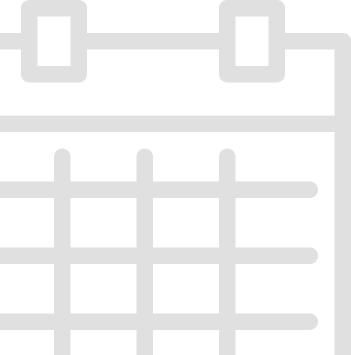$8,000
IN HONORARIUMS
The Cureus Journal of Medical Science is proud to introduce the Radiation Therapy as a Modality to Create Abscopal Effects: Current and Future Practices publishing competition. The goal of the program is to collect and showcase clinical instances of the abscopal effect featuring high potential methods of delivery and combination therapy and by doing so potentially discover unanticipated new knowledge of this complex phenomenon. Specifically, we are seeking new publications focusing on the following areas:
- Review articles on radiation therapy with abscopal effects
- Concepts explaining the mode of action for abscopal effects and which cases would benefit most
- Case reports or case series demonstrating combination therapy of RT with immunotherapy to increase the abscopal effect
- Different methods of RT delivery and their impact on creating the abscopal effect
Eligible submissions shall include related original articles, review articles, technical reports, case reports and case series.
Our goal is to share the results with the Cureus global community of radiation and clinical oncologists, neurosurgeons (where applicable), medical physicists, biologists and immunologists as well as patients who might benefit. To encourage dissemination and cross-disciplinary awareness, all published materials will be Open Access and indexed with PubMed Central.
The winners of this competition will be determined by general acclaim of the medical community using Cureus Scholarly Impact Quotient™ (SIQ™) crowdsourcing technology.
Program administration has been enabled through the financial support of Varian Medical Systems. Article selection, editorial review, peer review, publication, and competition winner determination are strictly independent of the sponsor.
Peer Review Panel
All article submissions will undergo an independent pre-publication peer review conducted by a world-class team of experts.
Mark A. Hallman
MD, PhD, Assistant Professor | Radiation OncologyDepartment of Radiation Oncology, Fox Chase Cancer Center, Philadelphia, PA, USA
Ricky Sharma
MD | Radiation OncologyDepartment of Radiation Oncology, University College London, London, GBR
Karen J. Kirkby
PhD, Professor | Radiation OncologyCancer Sciences, University of Manchester / Christie NHS Foundation Trust, Manchester, GBR
Heinz Schmidberger
MD, Professor | Radiation OncologyRadiation Oncology, University Medical Center Mainz, Mainz, DEU
Chandan Guha
MBBS, PhD, Professor | Radiation OncologyRadiation Oncology, Montefiore Medical Center/Albert Einstein College of Medicine, Bronx, USA
Sandra Demaria
MD, Professor | PathologyRadiation Oncology, Weill Cornell Medicine, New York, NY, USA
Ralph R. Weichselbaum
MD | Radiation OncologyUniversity of Chicago, The University of Chicago Medicine, Chicago, IL, USA
Ralph Vatner
MD, PhD, Assistant Professor | Radiation OncologyRadiation Oncology, University of Cincinnati and Cincinnati Children's, Cincinnati, OH, USA
Mary Barcellos-Hoff
PhD, Professor | Radiation OncologyDepartment of Radiation Oncology, University of California, San Francisco, San Francisco, CA, USA
Amit Maity
MD, Professor | Radiation OncologyRadiation Oncology, Perelman School of Medicine at the University of Pennsylvania, Philadelphia, PA, USA
Competition Entries
The entry period is now closed. Competition entries appear below as they are published. Now is your chance to score and discuss these articles. Remember, honorariums will be awarded to the three highest-scoring articles!
Requirements
Competition entry and article submission is entirely free. All submitted work must be previously unpublished. Eligible entries include original articles, case reports/series, review articles and technical reports.
All articles must be submitted and formatted via the template-driven, self-publishing Cureus platform. Authors are encouraged to include supporting animations and videos within their article submissions. Reference limits vary by article type. For additional information on publishing with Cureus, please refer to our Author Guide.
Other Stipulations
- All clinical studies must be compliant with applicable regulatory, ethics / IRB, and other rules governing protection of human subjects.
- All non-clinical studies must be compliant with applicable AAUC, AAALAC, and other related regulations.
- This program is not intended to promote or otherwise encourage unapproved, un-cleared use of products or any product for unapproved new use.
- This program in no way promotes or purports to encourage any research that is not in compliance with any local, federal, or other applicable governing laws
Statement of Independence
- Cureus Publishing Competitions are intended to encourage medical discovery and document clinical experiences – be they positive, negative, or neutral – and foster broader educational outreach through Open Access publication that is free to both authors and readers.
- Article submissions must adhere to the described “call for articles” and are open to any and all related manufacturer or vendor technologies.
- As a firewall to ensure objective and credible science, article selection, editorial review, peer review and publication are strictly independent of the sponsoring company.
- Winning articles are selected exclusively via peer review panel and community crowdsourced scoring. Neither the sponsoring company, nor Cureus, can determine the competition outcome.

Awards
Winning Article Awards
The three highest Cureus SIQ™ (Scholarly Impact Quotient™) scored published articles will be awarded an honorarium for Cureus Scientific Excellence™:
- $5,000 USD for 1st place
- $2,000 USD for 2nd place
- $1,000 USD for 3rd place
Subsequent to a formal editorial and peer review, published articles undergo SIQ scoring - Cureus’ unique crowdsourced, secondary peer-review process. In addition to measuring engagement, SIQ allows the community-at-large to rate the quality of individual articles. Reviewers assign scores from 1 to 10 on criteria including clarity and rationale, clinical importance, study design and methods, data analysis, novelty of conclusions and quality of presentation.
Aggregated community SIQ scores allow clinicians and researchers to quickly assess article quality in a manner similar to that of Amazon® and Yelp® community reviews.
Eligible articles must receive a minimum of 5 scores. (A Cureus user can assign only one score per article.) As engagement and scoring is critical to winning, authors are highly encouraged to share their published articles via social media and email.
Sunshine Act Reporting
Section 6002 of the Affordable Care Act requires applicable manufacturers of covered drugs, devices, biologicals, and medical supplies to report payments or other transfers of value made to physicians and teaching hospitals. For winning article and referral awards paid to “covered recipients,” award fees shall be supplied to Varian for subsequent Sunshine Act reporting.

Key Dates
- Tuesday, September 11, 2018 – Competition begins; articles may now be submitted.
- Tuesday, January 8, 2018 – Article submission deadline @ 5:00 pm PT (UPDATED)
- Tuesday, February 12, 2018 – Peer review of all eligible articles concludes.
- Monday, March 18, 2019 – Crowdsourced scoring (SIQ) complete @ 5:00 pm PT. (UPDATED)
- Thursday, March 21, 2019 – Winning articles announced

